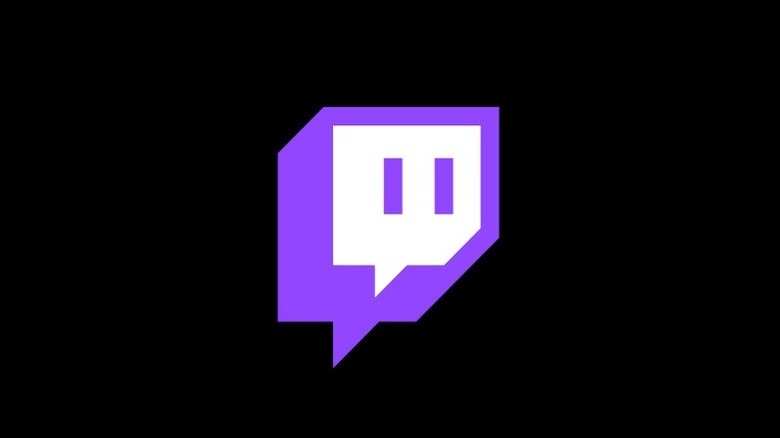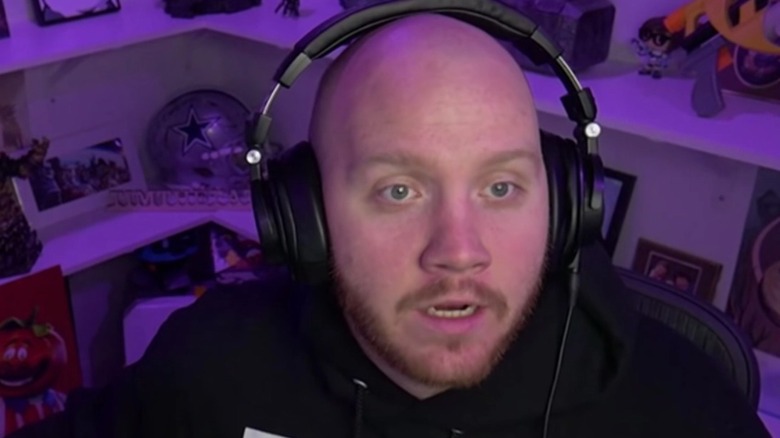The Truth About Twitch's Secret 'Do Not Ban' List
Twitch confirmed on Twitter that it suffered a serious data breach on October 6. Hackers managed to gain access to the company's servers and released a host of data to the public. As summarized on Reddit, this supposedly included information about an unreleased Steam competitor codenamed "Vapor" and a list reporting the donation earnings of their most successful streamers in 2019, allowing many fans a peek behind the curtain at how much these content creators actually make. Over 120 gigabytes of data reportedly leaked, and several other files are still being examined with new details coming to light. One of the more nefariously titled files bears the name "do_not_ban_list."
Twitch has always had a shady side. Critics of the platform have often complained that Twitch spends too much time and energy on a handful of "celebrity" streamers and doesn't do enough to help small channels grow, so people were naturally upset to learn there was a list of creators who seemingly didn't have to abide by the same rules. Aurondarklord wrote on a thread about the document, "you shouldn't get to operate like this and be considered a platform rather than a publisher," while user CptYandere wrote, "not [surprised] at all with all Twitch politics: 'We don't allow toxicity but we won't ban our top-tier toxic streamers.'"
A new report from The Washington Post revealed that this list might not be exactly what it seems, however.
'Do not ban' list allegedly not a full 'get out of jail free' card
As noted by The Washington Post, many fans immediately made a connection between the "do not ban" list and streamers like Amouranth, who is still on the platform after multiple bans. The biggest question on everyone's mind became whether or not Twitch actually had created a list to note which streamers are impervious to content strikes.
The Washington Post contacted several former Twitch employees to ask them about the leak. According to the report, the first thing to understand about the "do not ban" list is that it's several years old. The list "was meant to work in conjunction with an internal Twitch tool called Better Desk, which the company replaced years ago." Presumably, the list is no longer actively used since the company no longer uses the software that it was built for.
The second thing the news outlet explained is that it isn't a "do not ban this account whatever they do" list, but rather a "do not ban for these specific reasons" list. But what does that mean, exactly?
Some creators were on the list to protect "Just Chatting" streams
The Post cited one former Twitch staffer as saying, "[It was] basically a way to add a red notification on reports against [a] channel to make the admins working on reports aware that there are some agreements in place or that the channel is allowed to do certain things. Often it was used to allow what we now call IRL streams."
That's right; some streamers would have to make a deal with Twitch to allow them to participate in non-gaming streams, which used to be rare on the platform. According to the former staffers, TimTheTatman was one of the more notable streamers with a "non-gaming" entry on the list, just to make sure he wasn't dinged for any "Just Chatting" streams in which he wasn't actively playing games.
This list was also likely designed with the intention of fielding a large portion of the unsupported ban reports big streamers receive every day, so that admins wouldn't ban them out of hand. After all, even Twitch's most popular streamers often have to deal with a number of toxic messages and unfounded accusations that could get them banned without proper oversight — and plenty of bogus Twitch bans still manage to slip through.
While the "do not ban" list was never intended to allow top streamers to get away with whatever they wanted, the former staffers alleged it did allow them to enjoy more leeway than the average joe.



